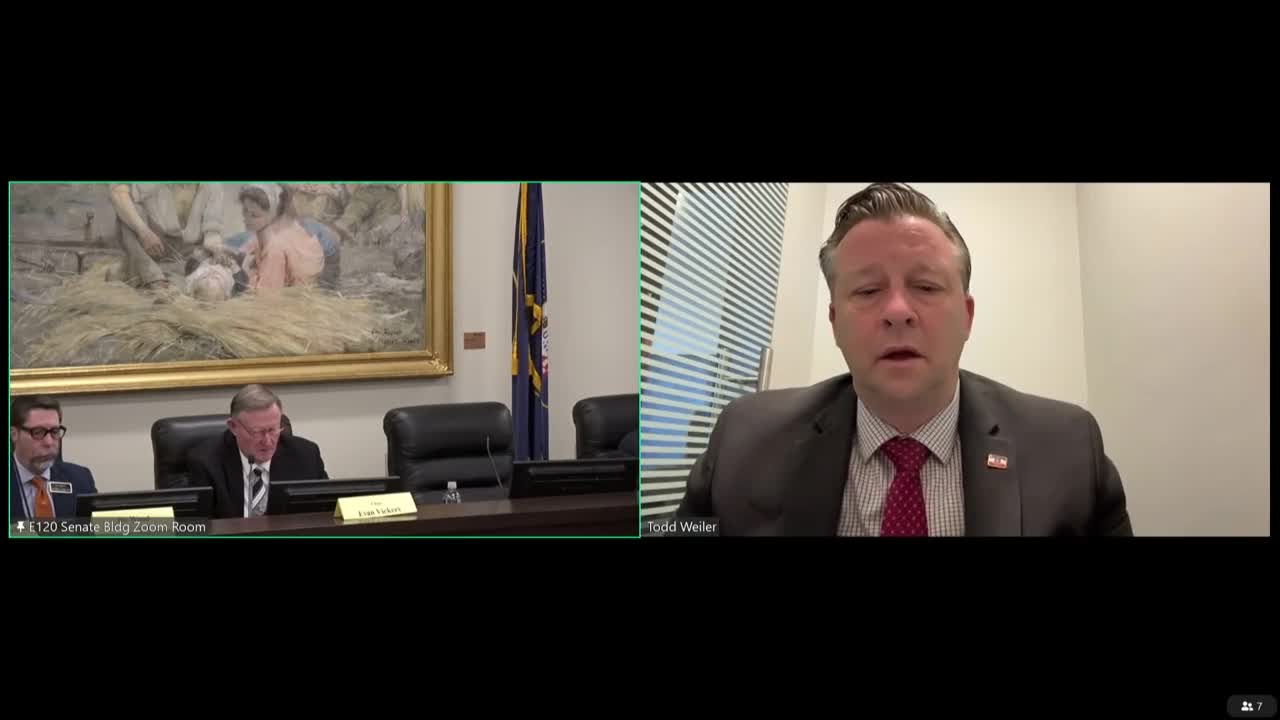Committee backs bill clarifying parental waivers for behavioral-health transport
Get AI-powered insights, summaries, and transcripts
Subscribe
Summary
The Business and Labor Committee voted to favorably recommend Senate Bill 302, which clarifies that parents may sign liability waivers when behavioral-health programs transport their children; opponents warned the measure could limit remedies after serious injury or death.
Senate Bill 302, clarifying that parents may sign waivers releasing certain behavioral-health programs from liability when those programs transport children, was favorably recommended by the Utah Senate Business and Labor Standing Committee on Feb. 25.
The bill's sponsor, Senator Chris Weiler, said the measure is limited in scope and voluntary. "It just clarifies that parents can sign a waiver if a behavioral health center is transporting their child," Weiler said, describing programs such as Camp K in Salt Lake that provide pick-up transportation for day programs. He added the bill would not require parents to sign waivers.
The bill matters because it addresses insurers' reluctance to cover transportation by some providers, Weiler said, and aims to make it easier for programs to obtain coverage. "Right now, it's hard for these companies to get insurance, because of the potential lawsuits when you're transporting disabled people around the town," Weiler said.
Opponents, led by Kurt London, an injury attorney representing the Utah Association for Justice, told the committee the change risks stripping families of remedies for catastrophic outcomes. "We oppose this bill for a few different reasons. One of them is one of the injuries included, which can be waived as a death," London said, adding that the Utah Constitution protects wrongful-death claims. He said parents' waivers could leave injured children without compensation for pain and suffering if the family lacks other insurance.
Committee members sought clarification about who would pay medical costs after a crash if a waiver were signed. Senator Musselman asked whether a parent's medical or auto insurance would cover injuries; Senator Weiler responded that medical insurance would, but he did not believe the parent's auto insurance would apply when the parent's vehicle was not involved.
The committee voted to favorably recommend SB 302 to the full Senate. The motion to recommend the bill was made by Senator Weiler and passed by voice vote; the committee chair ruled the motion passed unanimously (4–0).
The bill does not require parents to sign waivers; it only clarifies that a parent may sign one if they choose. The proposal prompted legal concerns about the enforceability of parental waivers and whether courts would uphold agreements that limit recovery for serious injuries or wrongful death.
What happens next: SB 302 moves to the Senate floor for further consideration. The transcript shows no amendment at committee level; questions and public comment centered on liability and who pays medical costs when transportation is provided by a nonparental carrier.
